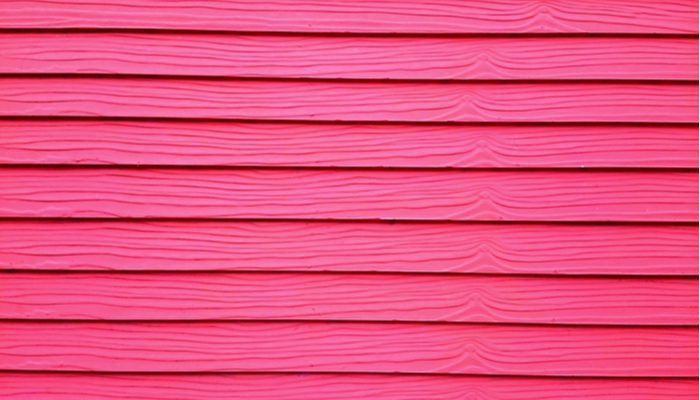5 Warning Signs You Need New Gutters

Keep an eye out for warning signs that your gutter system needs to be cleaned, repaired or replaced.
Gutters are an important part of your home. They direct water away from your home’s exterior walls, windows, doors, and foundation, preventing water from making its way inside. Although cleaning your gutters several times a year will enhance the longevity of your system, most gutters will need to be repaired or replaced eventually to help protect your home.
Look for these five signs to determine when it’s time to replace your home’s gutter system:
1. Cracks or splits of any kind
While small cracks in your gutters may not seem like a big issue, small cracks will eventually turn into big ones and it may happen sooner than you think. If you allow cracks to remain without, water can not only damage gutters further, it can damage the fascia boards behind the gutters, the shingles above the gutter and the foundation below.
2. Paint peeling on or around your gutters and/or flecks of orange
The paint on your gutter is designed to withstand the typical wear and tear throughout the seasons. Unless your gutters are extremely old, peeling paint or orange flecks from the beginning stages of rust are an indicator that water is present on a continuous basis. This could indicate water is not being removed by the gutter or that cracks or other damage may be present.
3. Pools of water or signs of mildew around your home’s foundation
Gutters are designed with the purpose of keeping water flowing away from your home’s foundation. If you notice pools of water or mildew near the foundation, it can indicate that the gutters are not working as intended. This could be caused by something as simple as a clog or by something as complex as a defect in the gutter system. Water can easily cause foundation damage leading to costly, time-consuming repairs.
4. Water damage or water marks directly beneath the gutters
Check your gutters at least once a year on a day that’s relatively sunny and free from rain. Water damage or marks underneath the gutter indicate that leaking or overflowing water is escaping the gutter. This type of water intrusion can damage your soffit and fascia board.
5. Gutters sag or have begun to pull away from the house
This is one of the easiest ways to tell you need gutter repairs or gutter replacement because you don’t need to be on a ladder to notice it. Gutters should never sag or pull away from the home. This can indicate that the gutters are full of water and pulling away from the house due to the weight. Sagging gutters could require significant cost or hassle to repair. A full gutter means that the gutter system may not be appropriate for the home, its draining improperly or debris is causing blockage.
Your gutters are your home’s first line of defence against Mother Nature. They reroute rain to your drainage system so that your property looks as glossy and new as it was when it was built. There are reasons contractors install gutters on every home they build. Water is one of the most destructive forces on the planet.
It created The Grand Canyon, and it will attempt to achieve the same effects around your house. Your gutters prevent that destruction while giving your roofline a crisp edge. That doesn’t mean they last forever, though. They’re as prone to damage as any other part of your house.

How long should gutters last?
Galvanized steel and aluminum gutters tend to last around two decades, but if you’ve invested in robust copper ones, that lifespan will stretch to 50 years. Mother Nature is a little less destructive to downspouts, so you can add an extra decade to their lifespan.
Love and care can add years to your guttering, so careful maintenance is well worth the trouble. A biannual cleaning and regular sealant reapplication will have impressive effects on your wear and tear. If you avoid abrasive chemicals and mechanical damage, you can put off that gutter replacement even longer. Gutter guards will support those pursuits.
Few homeowners realize the importance of regular maintenance. Don’t become one of them. An annual inspection and service will take care of minor gutter problems before they become catastrophic.
Remember that malfunctioning gutters damage more than just your siding and foundation. They can erode your soil and seep into your garden. All it takes is a minor blockage or ice dam, so make visual gutter inspections a regular part of your day-to-day life.
Signs that your gutters are damaged
A slapdash gutter installation will render them worthless before they catch even a drop of rain. If your pitching doesn’t offer a minimum of a quarter-inch of sloping per 10 feet, they’ll need to be realigned.
Even well-installed gutters can develop peeling paint and water pooling. These are the first signs of gutter failure, so treat them with respect. Given enough time, they’ll evolve into mildew and black mold infestation, particularly near your foundation. You’ll soon see signs of water damage and corrosion underneath your gutters.
Cracks can defeat the point of your drainage system, but if you get them repaired in good time, you might be able to avoid a complete replacement. Worn-out gutters tend to show signs of seam stress, too, but this is easier to repair. You can identify the problem by separations and leakage at the point where your horizontal guttering meets.
How can you tell if you need new gutters?
Your gutters aren’t as robust as you might think. They can only hold a limited amount of water weight. If drainage is compromised and your hardware is taking more weight than it can handle, your slope might go awry. That’s the beginning of a domino effect that will ultimately leave your home susceptible to water damage.
If you ignore gutter stress for long enough, you will end up with irreparable damage. The key to winning this battle is acting as soon as you notice a problem. Gutter replacement comes at a premium, so call for a consultation as soon as possible.
Some gutter woes are easy to repair, but others warrant a serious reappraisal. Your downspouts rely on a clear drainage system to stay in excellent condition. When that pathway becomes compromised, your hardware might begin to sag and pull away from your siding. If you leave these symptoms unattended for long enough, that wilting weight will destroy your roofing and siding.
Sagging gutters will eventually collapse, but if you catch them early enough, you might be able to prevent catastrophic damage. If a screwdriver and a few screws won’t restore full functionality, you’ll probably need a replacement. Serious cracks and holes aren’t always reparable either, but you’d be surprised how much a dab of caulk can achieve. If even metal patches don’t help, though, it’s probably time to call the pros.
What time of year is ideal for gutter replacement?
Spring is the perfect month to install any type of gutters. Its dry skies and warm days are primed for an expert installation that’s unimpeded by showers. That doesn’t mean you have to wait, though. Winter installations might be a little more difficult, but they aren’t impossible. In fact, you might even manage to negotiate a lower price out of season.
Those humble gutters might not look like much, but they’re one of your home’s most important protective mechanisms. Without them, your entire foundation can take serious damage, and that’s before you factor basement flooding into the mix. The time to take care of those pesky cracks and holes is now.
Need help with a gutter project? Schedule a free estimate with here.
Get a Free Estimate Today
50% off installation. Special financing available. See details.













